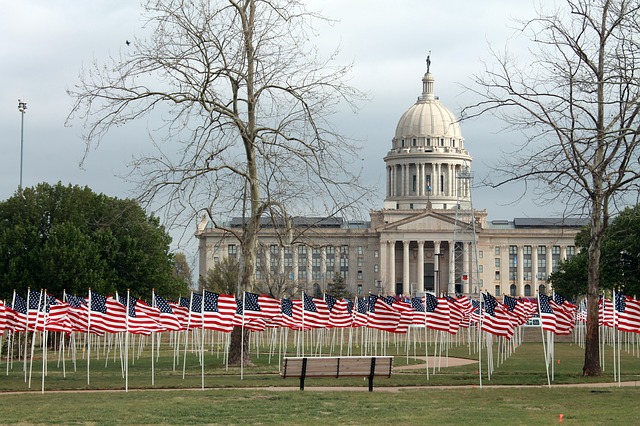Atheist group loses case against Oklahoma Ten Commandments monument

An atheist group has lost its case against the Ten Commandments monument found in the Oklahoma Capitol Building.
American Atheists, a New Jersey-based group, had filed the case against the state of Oklahoma and the State Capitol Preservation Commission on behalf of an unnamed woman who claimed to have been offended by the monument. The Commission argued during hearings that the woman had seen the monument only once and accused her of intentionally travelling to the Capitol to take offence.
On March 10, the Christian News Network reported, US District Judge Robin Cauthron dismissed the case. Judge Cauthron observed that the woman lacked standing to sue and has demonstrated no evidence of personal injury directly caused by the monument.
American Atheists' Communications Director Danielle Muscato said the group was "surprised and disappointed" by the ruling, but he also said they plan to continue challenging the monument.
"Oklahoma is breaking the law and cannot hide behind standing," Muscato stressed.
"This monument remains unconstitutional and we intend to refile," he added.
Oklahoma's State Attorney General Scott Pruitt lauded Judge Cauthron's decision.
"The historical relevance of the Ten Commandments and the role it played in the founding of our nation cannot be disputed," he said. "I commend Judge Cauthron's decision to rule in the state's favour."
This is the latest of many legal challenges to the Monument. In 2013, the American Civil Liberties Union (ACLU) of Oklahoma filed suit alleging that the monument's erection on the grounds of the state capitol building was unconstitutional. Lead plaintiff ruce Prescott, the director of Mainstream Oklahoma Baptists said the monument violated the US Constitution's Establishment Clause.
The clause states that "Congress shall make no law respecting an establishment of religion."
Seventh District Court Judge Thomas Prince ruled in September that the monument is an important historical marker commemorating the role of the Ten Commandments in the foundation of the US legal system.











